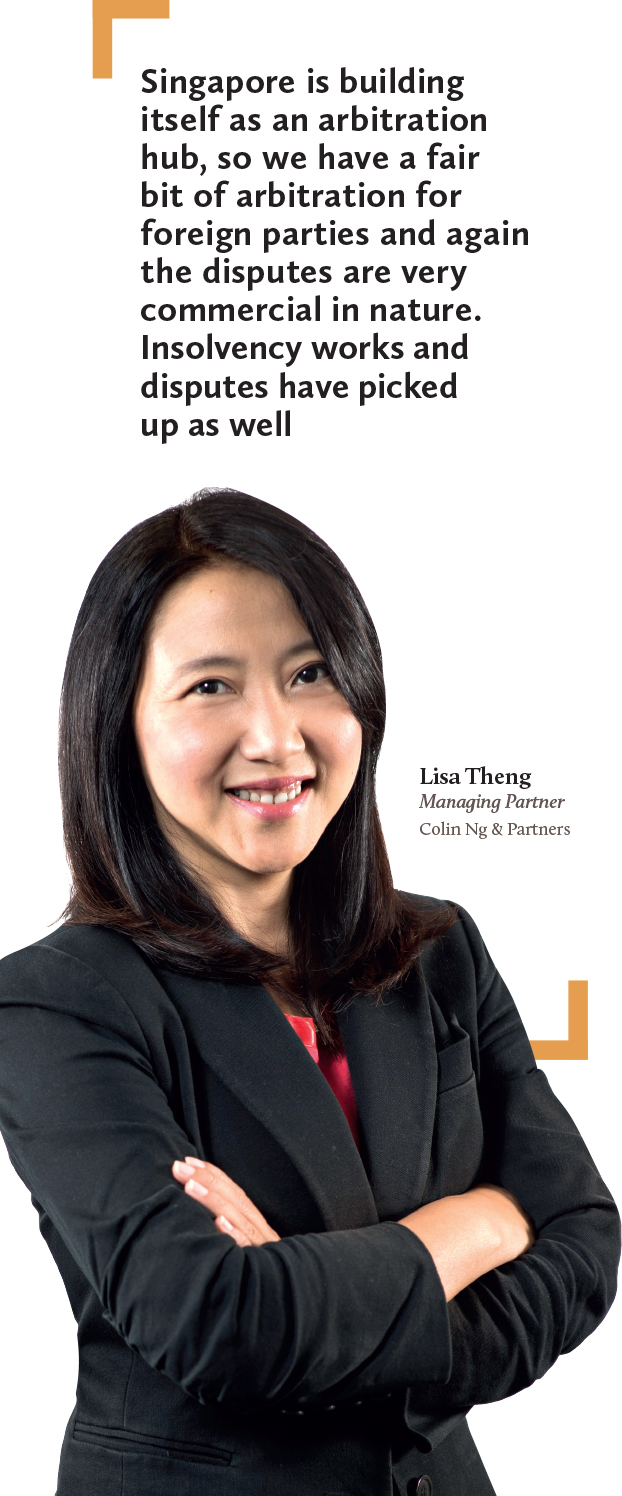Despite economic setbacks and more localized challenges such as an oversupply of local lawyers and an influx of foreign ones, Singapore Inc. is very much in control, with an eye to the future and its pride of place in the region. John Church reports
What is it about Singapore? Even when the city state is not doing well it gives off the impression that everything is just fine and every problem has been anticipated. As growth flounders in 2016, law firms are signalling tougher times ahead, while many actively pursue opportunities in the wider ASEAN region.
As is always the case with legal work, when one part of the economy is suffering other practice areas are doing well. But in Singapore the feeling is different. The dominance of one party in power for decades has to some degree added to stability and fuelled the rapid pace of reform. Policies that elsewhere in Asia would take an age are fast-tracked and realized in a political instant. Few, if any, in the region can match Singapore’s ambition.
Sriram Chakravarthi, the senior director and chief legal counsel at the Singapore Academy of Law (SAL), sums up the challenges ahead for the city state. “The present economic climate has contributed to an increase in cross-border insolvency and debt restructuring work,” he says. “Singapore is well placed to capture a share of this work.”
When economies go off the boil, law firms tend to provide the best bellwethers as to which sectors are cold and which are hot. Asia Business Law Journal asked a cross section of them how they were faring.
Chia Kim Huat, regional head of corporate and transactional practice at Rajah & Tann, says capital markets have picked up this year, when compared to last year. “Is it sustainable? For the rest of the year a couple of listings are coming to market, but 2017 is a bit uncertain,” he says. “In terms of sectors, those that are attractive to overseas investors, one is logistics. Because of the OBOR [one belt, one road] policy a lot of [these investors] are looking at setting up logistics chains across the region, so a logistics centre is very much in play. The other is infrastructure.”
Chia says Singapore is going through an economic restructuring. “Our government has come up with the CFE, the Committee for the Future Economy, trying to reposition,” he says.
K Murali Pany is managing partner at JTJB, which has four key practice areas: disputes (arbitration/litigation), shipping work, real estate and corporate. “The next 12 months is about battening down the hatches and being prudent,” he says. “There is a lot of uncertainty in terms of oil and commodity prices as well as the availability of finance. For Singapore, much will depend on external drivers, China and India primarily, which are both having their own issues.”
Lisa Theng, managing partner at Colin Ng & Partners, says the mid-sized full service firm covers litigation, arbitration disputes and mediation, “and for these areas we have been very active, which is a sign of the market”.
“Our lit-arb team has been busy for most of this year and continues to be busy,” she says. “Singapore is building itself as an arbitration hub, so we have a fair bit of arbitration for foreign parties and again the disputes are very commercial in nature. Insolvency works and disputes have picked up as well.
“Our M&A is still active, especially for private M&A and private equity VCs. I suppose they are looking for interesting businesses to invest in, and with Singapore emphasizing the areas of innovation, tech, Fintech etc., we have quite a few VCs and funds coming in, and we help them invest. Singapore is transparent so they have some confidence in investing here.”
Edmund Kronenburg is managing partner at Braddell Brothers, a boutique litigation and arbitration outfit that picks up work that would otherwise go to big firms – referred work from international players as well as big Singapore firms. “I can’t say anything is on the rise because the economy looks rather tentative in 2017,” he says. “Disputes is probably the safest practice area to be in. There’s a lot of competition in the corporate arena, not only from Singapore firms but also from international firms, which have been granted licences to do work in Singapore. IP is still very strong.”
According to Wiyatno Mursjid, a senior associate at Gateway Law Corporation, a mid-sized firm with 10 lawyers, an office in Malaysia, one about to open in the Philippines, and plans to expand in Vietnam, “you can’t avoid the economic downturn”.
You must be a
subscribersubscribersubscribersubscriber
to read this content, please
subscribesubscribesubscribesubscribe
today.
For group subscribers, please click here to access.
Interested in group subscription? Please contact us.
你需要登录去解锁本文内容。欢迎注册账号。如果想阅读月刊所有文章,欢迎成为我们的订阅会员成为我们的订阅会员。
PRACTITIONERS’ PERSPECTIVE




























